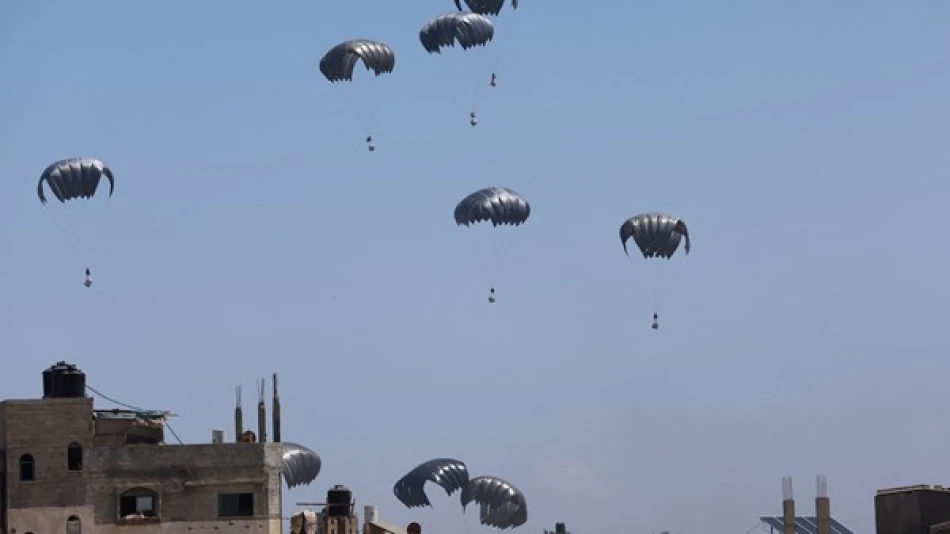
Belgium Joins Countries Dropping Aid Over Gaza, Sparking Humanitarian Concerns
Belgium Joins European Humanitarian Coalition with First Gaza Airdrop Mission
Belgium has become the latest European nation to launch aerial humanitarian operations over Gaza, conducting its first airdrop of food supplies on Sunday as the enclave faces mounting hunger amid ongoing conflict. The move signals growing European coordination on direct aid delivery, bypassing traditional ground-based distribution networks that have proven inadequate during wartime conditions.
Expanding European Air Bridge
The Belgian Defense Ministry confirmed that its air forces successfully completed their inaugural airdrop mission over Gaza on Sunday, joining France, Germany, and Spain in what has emerged as a coordinated European response to the humanitarian crisis. This marks a significant shift from conventional aid delivery methods, as European militaries increasingly turn to airdrops to reach civilians in conflict zones.
The timing suggests European governments are responding to mounting pressure from humanitarian organizations and public opinion to take direct action, rather than relying solely on diplomatic channels or funding traditional aid agencies.
Strategic Implications for Humanitarian Policy
Breaking Diplomatic Deadlock
The European airdrop campaign represents a pragmatic approach to humanitarian assistance that sidesteps complex political negotiations over ground access. By conducting unilateral air operations, these nations are demonstrating that humanitarian imperatives can override diplomatic complications when civilian populations face acute food shortages.
Operational Challenges and Effectiveness
Airdrops, while symbolically powerful, face inherent limitations in scale and precision compared to truck convoys or port deliveries. Military analysts note that aerial operations can deliver relatively small quantities of aid and risk uneven distribution among desperate populations. However, they provide immediate visibility of European commitment to civilian welfare during active conflict.
Broader European Coordination
The sequential launch of airdrop operations by four major European powers suggests behind-the-scenes coordination, likely through EU mechanisms or NATO partnerships. This approach allows individual nations to demonstrate humanitarian leadership while sharing operational burdens and political risks.
The pattern mirrors European responses to previous humanitarian crises, where initial hesitation gives way to coordinated action once one or two nations establish precedent. Belgium's participation particularly strengthens the coalition's legitimacy, given the country's role as host to EU institutions and its reputation for humanitarian neutrality.
Impact on Regional Dynamics
European military aircraft conducting regular missions over Gaza creates new operational realities that could influence broader conflict dynamics. While focused on humanitarian objectives, these flights establish European presence in contested airspace and demonstrate sustained political commitment that extends beyond financial contributions or diplomatic statements.
The success or failure of this European air bridge will likely influence future humanitarian responses in conflict zones, potentially establishing airdrops as a standard tool when traditional aid delivery mechanisms break down.
Most Viewed News

 Layla Al Mansoori
Layla Al Mansoori






